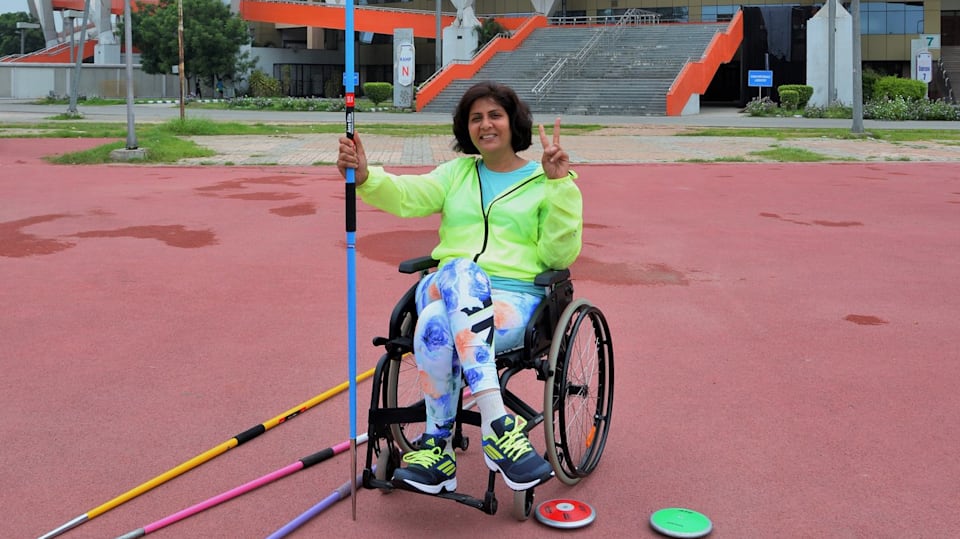With Government support, para-sport is becoming mainstream in India, says Deepa Malik
The Paralympic Committee of India has ensured that each one of their Tokyo-bound athletes is covered by a financial assistance scheme to ensure smooth preparations.

In December 2020, the Paralympic Committee of India (PCI) was awarded the 'Best National Sports Federation Award' at the Federation of Indian Chambers of Commerce & Industry’s (FICCI) Turf 2020 India Sports Awards.
The award was a token of recognition of the sincerity and perseverance of the board members of PCI led by President Deepa Malik and the work that was being done on-ground in synergy with the Sports Ministry and SAI (Sports Authority of India).
What made it even more special was that it was won at a time when the Coronavirus pandemic posed a challenge none were prepared for.
"I think the federation has done a tremendous job even in the Covid times,” Deepa Malik told the Olympic Channel.
“We have held numerous webinars, took care of the mental health of our athletes, stood up for home training and used the social media to perfection for communication. We as a federation have the maximum people (38) in the TOP (Target Olympic Podium) scheme as well. So it shows that we have been doing a good job.
"Every athlete who has been in the line-up for Tokyo or is hopeful is under some financial assistance scheme. The girl (Bhavina Hasmukhbhai Patel) who has qualified for Tokyo has got a custom-made wheelchair, especially for table tennis. She has got funding to get her own international standard table. Seven lakhs has been given to her for equipment alone. This is just one athlete, there are many other examples. We have seven-eight athletes under the watchlist and once they come back from their international event, they might be included in the TOPs list.”
Malik feels that with constant support from the Union Government and the Sports of Authority of India (SAI), para-sports are gradually carving their way into the mainstream.
"Once policies become mainstream then naturally it will be accepted more,” said Malik, who won a silver medal in shot put at the Rio Paralympics in 2016.
“We are at par in the TOPs scheme, in the job schemes. You pick up any central government scheme it is the same for all. Even the media has also started acknowledging. They are aware of categories and disability quota allocation. Every initiative of the government has one para-athlete representative.”
“Be it the Fit India campaign, Phir Khelega India or even Swachh Bharat we have got ambassadors. The government has been super supportive. The TOPs scheme covers 38 of our athletes. We are their focal point. There is a lot of mainstream feeling that we are getting," she asserted.
However, there are a couple of serious challenges that need to be addressed so that the community flourishes in the long run.
"I want to have more para-academies. The sport will not grow until you have more. We have five academies today. But that is going to take time. Now they have announced but it will take at least three-four years. It is also important for every state government to have a policy for para-sport.
"It is also important to develop the education system around para-sport. We want to start courses so that we can have qualified classifiers. We don't have many of them. If we had our own IPC approved classifiers to level three, things would have been easier.
“We need to have at least 40-50 of them in the country so children are playing in the right category. You could be playing or running a race for two years and then you go abroad and is placed into a different category, your two years have gone to waste. Unless you go abroad you don't get classified.”
Malik and her team are keeping no stone unturned to help India finish with a double-digit medal tally in the upcoming Tokyo Paralympics. If India do manage to achieve that feat, it will be another feather in the cap for PCI and its first athlete-president.
